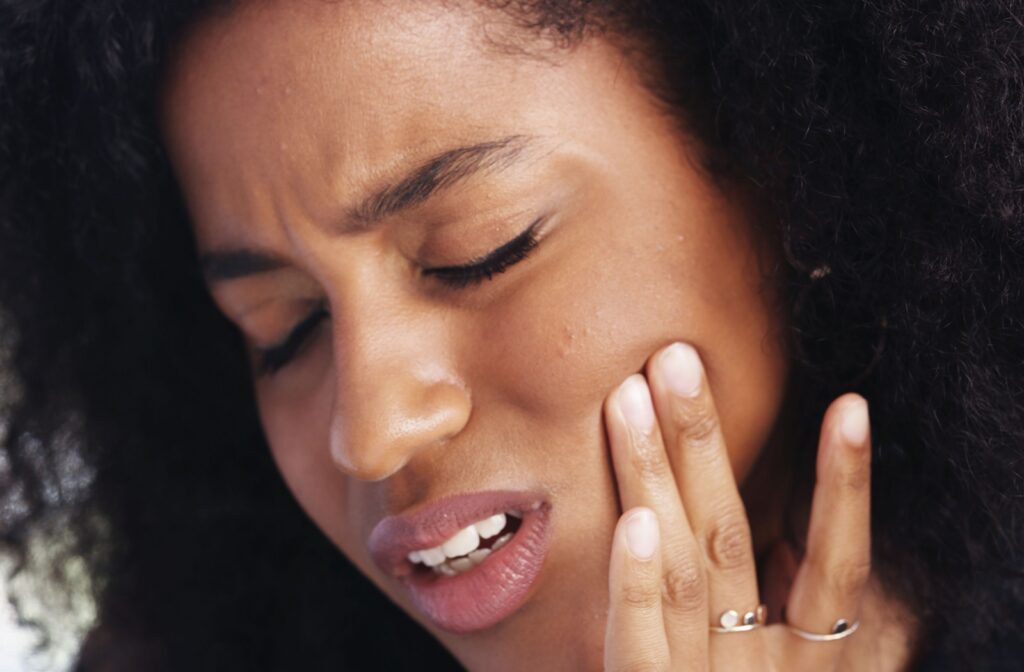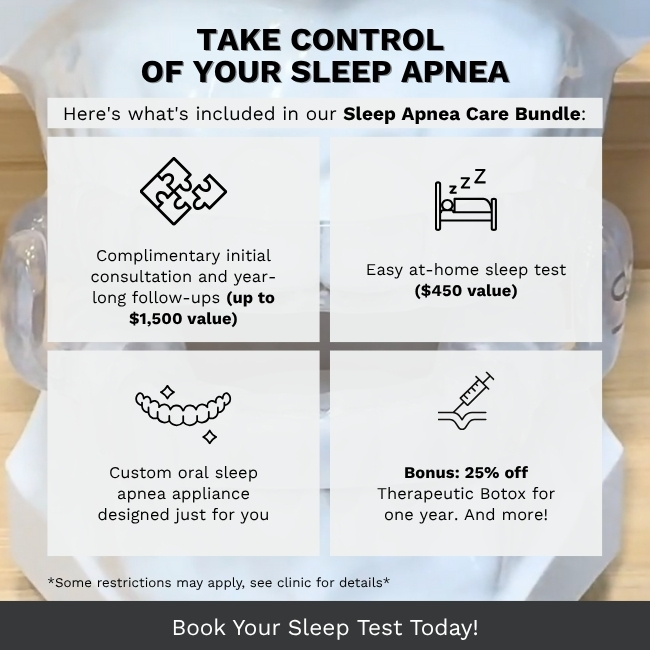Can TMJ Cause Tooth Pain?

You feel a nagging pain in your tooth and assume it’s a cavity. But what if the source of your discomfort isn’t your tooth at all?
The joint that connects your jaw to your skull, the temporomandibular joint (TMJ), can cause pain that feels just like a toothache. In fact, problems with your temporomandibular joint can cause pain that you feel in your teeth.
This happens because of a sensation called referred pain, where discomfort from one area of your body is felt in another. The good news is there are treatment options to help you find relief.
What Are TMJ Disorders?
Your temporomandibular joint acts like a sliding hinge, helping you talk, chew, and yawn. TMJ disorder (TMD) occurs when this joint and the muscles that control it are not working correctly. This can lead to pain and discomfort in your jaw joint and the muscles that surround it.
The Link Between TMJ Disorders & Tooth Pain
Because the nerves in your face are so close together, pain from your jaw joint can spread to other areas of your face, including your teeth. In some cases, if TMJ is causing misalignment of your jaw, this can also put more pressure on certain teeth.
What Does a TMJ Toothache Feel Like?
TMJ-related tooth pain often presents as a dull, aching sensation that can affect several teeth at once, not just one. The pain might be constant, or it may come and go. Cold can make the tooth ache feel worse.
It can also feel sharp and may get worse when you move your jaw to chew or speak.
How TMJ Affects Nerves in Teeth
TMJ disorders don’t directly harm the nerves inside your teeth. Instead, the inflammation and muscle tension in your jaw can put pressure on the major nerves running through your face. This pressure sends pain signals that your brain may interpret as a common toothache.
Common Signs of a TMJ Disorder
If your tooth pain is related to a TMJ disorder, you might notice other symptoms as well. Watch for these common signs:
- Pain or tenderness in your face, jaw joint area, neck, & shoulders
- A clicking, popping, or grating sound when you open or close your mouth
- Trouble chewing or a sudden uncomfortable bite
- Locking of the jaw, making it difficult to open or close your mouth, which can also be linked to other conditions like sleep apnea
- Headaches or pain around your ears
TMJ Pain vs. Other Tooth Aches
It can be hard to tell the difference between tooth pain from a TMJ disorder and pain from a dental issue like a cavity. However, a few clues can help you distinguish between them. This helps you get the right care for your specific situation.
Know the Difference Between an Infection & TMJ
Pain from a tooth infection or cavity is usually located in a single tooth. It’s often sharp and may be sensitive to hot, cold, or sweet foods, sometimes requiring urgent dental care if the pain becomes severe.
TMJ-related pain is typically a broader ache across several teeth that may intensify when you use your jaw.

How a Dentist Can Help With Jaw & Tooth Pain
A thorough evaluation is the first step to figuring out what’s causing your discomfort. We can provide a clear diagnosis and create a plan to help you feel better, all in one place. Because we employ dentists trained in a wide range of different treatments, you can get the care you need without needing to visit multiple offices.
Get a Clear Diagnosis
If you come in for a TMJ assessment, we will carefully examine your teeth, jaw, and bite. We’ll also look for signs of teeth grinding—a common habit linked to TMJ disorders—and assess your jaw’s range of motion. A digital x-ray may also be recommended.
This complete evaluation helps pinpoint the true source of your pain.
Custom Mouthguards for Pain Relief
For many people, a custom-fit mouthguard, or oral appliance offers significant relief from jaw tension. Worn at night, it can prevent you from clenching or grinding your teeth. This reduces pressure on your jaw joint and allows the muscles to relax while you sleep.
Tips for Relief
You don’t have to live with unexplained tooth or jaw pain. Long term pain will eventually rob you of every other emotion. While you work with your dental team, there are simple ways to manage your symptoms at home:
- Apply a cold pack to the sore area for 10 minutes at a time.
- Choose soft foods like yogurt, soup, & mashed potatoes to give your jaw a rest.
- Avoid chewing gum or eating hard, crunchy foods that strain your jaw.
- Try to relax your face & jaw muscles throughout the day.
Your TMJ Solution at Northwest Dental Centre
At Northwest Dental Centre, we can help you find the source of your jaw and tooth pain. When you visit our practice, you get a comprehensive assessment and a full range of options to address your discomfort.
Contact our team today to schedule your appointment.


